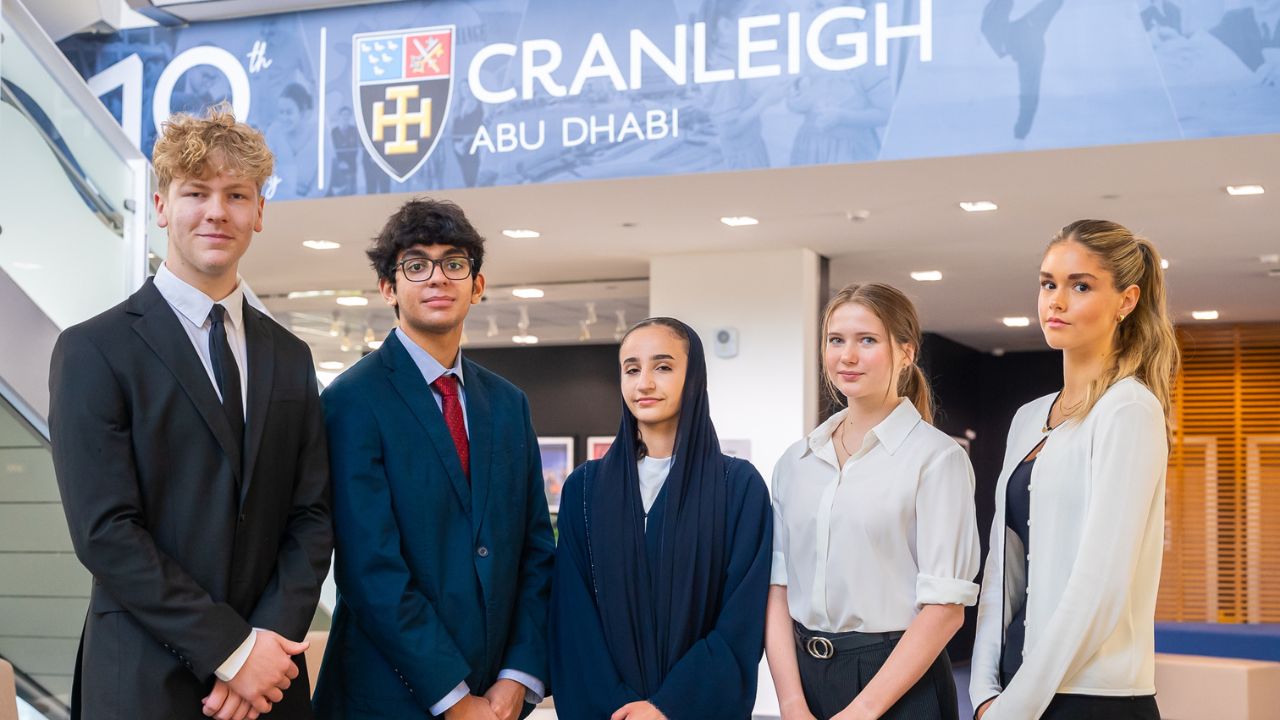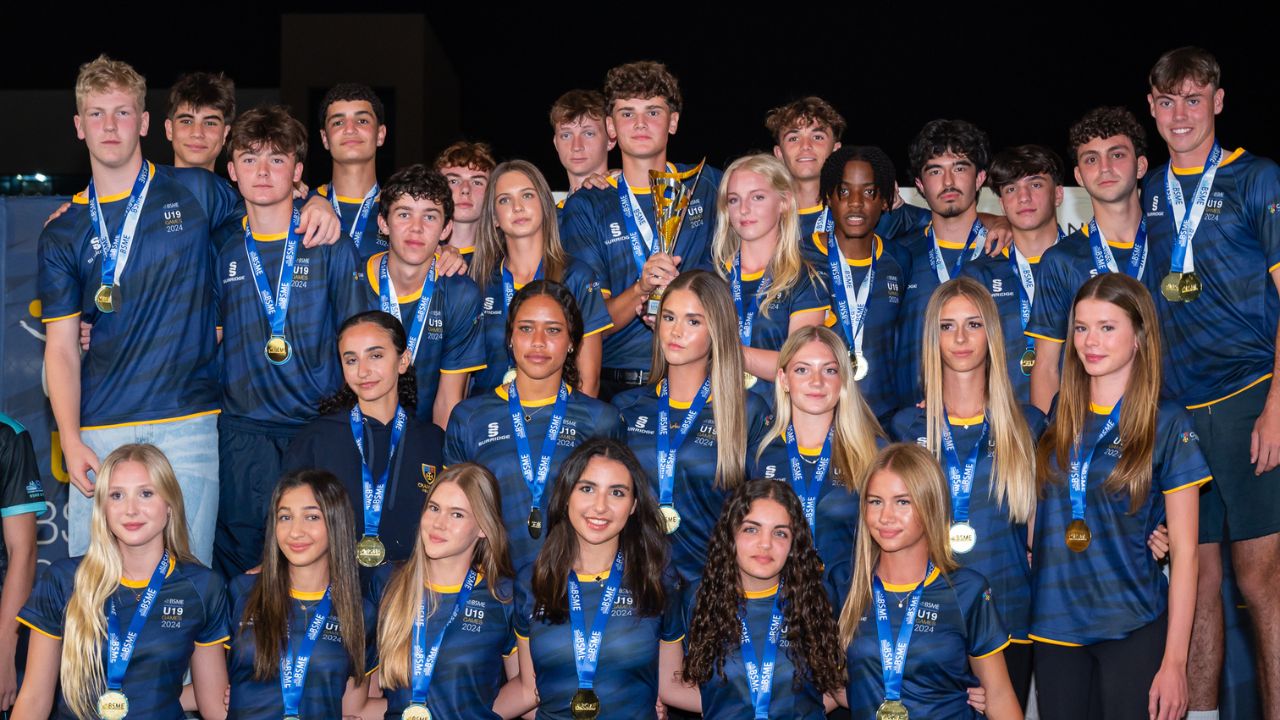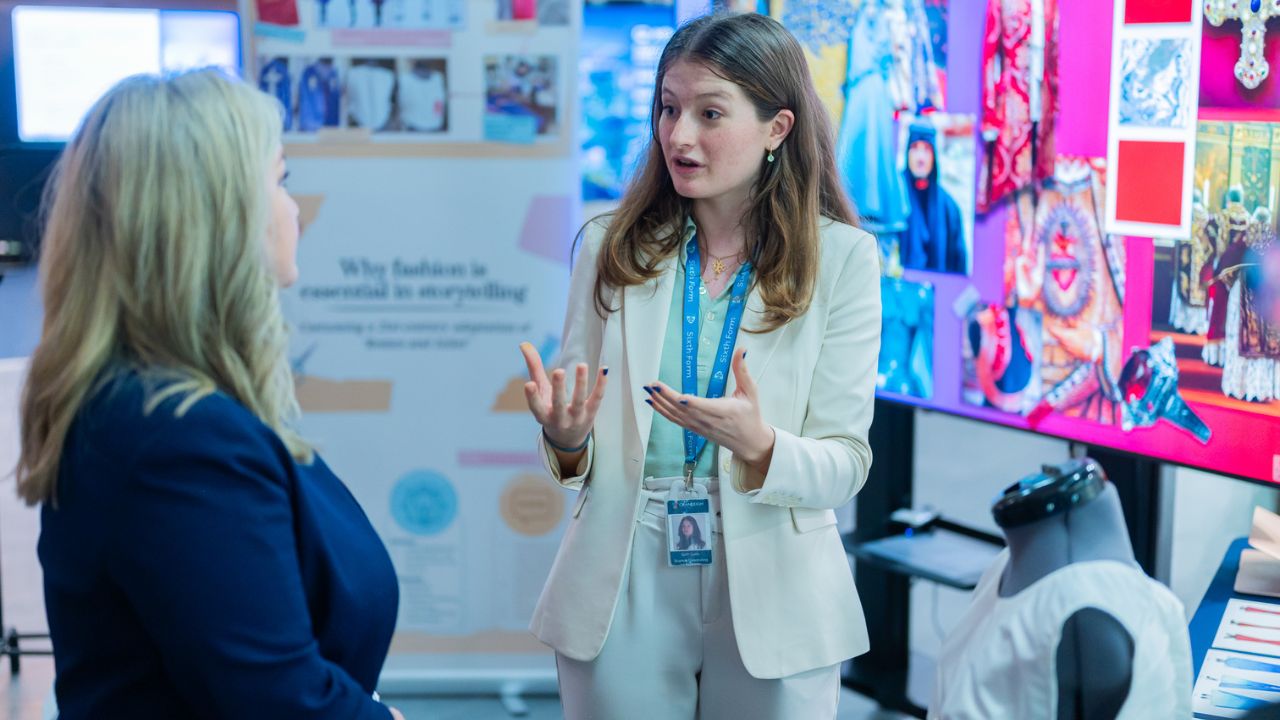
Offering flexible pathways, Capstone Projects, and a supportive community
For many teenagers, Sixth Form can feel overwhelming. Two years of study often come down to a handful of high-stakes exams, alongside the uncertainty of planning for life after school.
At Cranleigh Abu Dhabi, these pressures are carefully managed through structures that give students clarity, adaptability, and the assurance to grow at their own pace. “Exam results alone never tell the whole story.” says Damien Ward, Head of School.
“At Cranleigh, our priority is to help each student find the pathway that suits them best. When their choices align with their strengths and ambitions, it brings clarity and reduces pressure. With that sense of direction, students feel more confident and less anxious.”
At Cranleigh, preparation for life beyond school starts well before Sixth Form. From Year 9, students follow the Core Curriculum, which develops critical thinking, collaboration, resilience, and integrity.
Alongside this is a structured programme of university pathways and careers advice, so that by Year 12, students already have a clear sense of their strengths and ambitions.
Sixth Form becomes about refining choices rather than rushing to make them.
Smarter structures, healthier outcomes

When students join Year 12, the first few days are not about diving straight into lessons.
This year, students took part in an internship-style programme with global education company, 8 Billion Ideas, deeply exploring pathways, choices, and aspirations.
“We dedicated time to this because we value the concept of student focus so much,” Ward explains.
“If students are making independent choices, they are calmer, clearer, and more motivated.”
Flexibility continues in September, with a window for subject changes, allowing students to adapt if something isn’t right.
“When students feel ownership of their choices, anxiety subsides,” Ward says. Cranleigh now also offers almost a full suite of International A Levels, opening up more modular assessments meaning students can sit exams at the end of Year 12 as well as Year 13.
This staggered approach, still uncommon in the UAE, eases pressure and build confidence. The curriculum content is broadly the same as A Levels, but with more global relevance. Damien comments: “We just feel it’s more appropriate for the international community.” And goes on to add “It also means students have fewer exams in Year 13 and more certainty when applying to universities.
They know the range of grades they’re waiting for. That certainty really matters when we talk about pressure.” Student reports are another tool. Rather than presenting a single, static grade, reports show three measures side by side: a CAT4 baseline, current attainment, and an aspirational target.
“The message is simple – grades are not fixed,” Ward explains. “They can be improved and moved forward. That visual cue and shift in mindset is very powerful.”
Capstone Projects: Experience that dets students apart

Academic results are only part of the Cranleigh story. The school places strong emphasis on skills that last long beyond exams, such as research, communication, and leadership.
Capstone Projects, student-led initiatives that involve high-level research and formal presentations to often intimidating audiences, set students apart when it comes to university applications. “The value is in the process,” says Principal, Tracy Crowder Cloe.
“You see it in how articulate and eloquent the students are when they present. These experiences prepare them for university interviews and help their personal statements stand out.”
Follow Yalla for more education news
